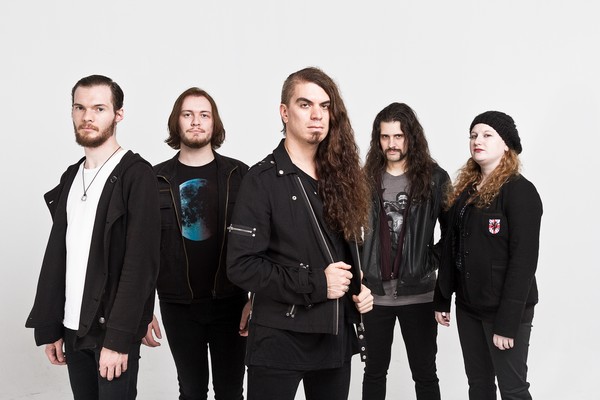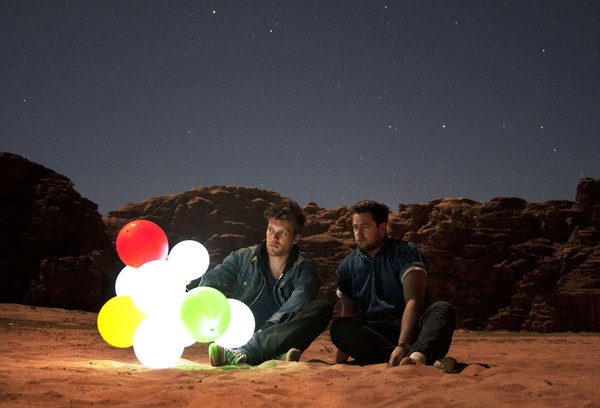“We’ve seen it gradually get worse for artists,” Estrin sombrely continuing on why Voyager went it alone. “No one ever expects to make a living out of heavy music. It’s hard to make ends meet sometimes. That’s why we decided on this approach.”
It was never a sure thing, though. Kickstarter’s littered with examples gone horribly wrong. To ensure success, Voyager tread conservatively.
“We went for a target of $10,000,” Estrin says. “We’ve got a pretty good fanbase all around the world. We met our target within three days, and exceeded it by almost 200%. Lots of pledges came from overseas. It’s a pretty encouraging start to what I hope is a music industry revolution.”
A bold statement, yet crowdfunding’s proving viable for bands already chewed up and spat out by less than scrupulous labels.
“It’s easy to get ripped off by a label!” Estrin laughs with warning. “I think the Kickstarter model worked for us, and it’s worked for other established bands, too. It’s important that you have some sort of a fanbase already, otherwise you’re just gonna get a few dollars from Mum and Dad and your friends. We’ve had a track record of releasing four previous albums. Fans knew what they were gonna get. They already had some seal of quality. It makes them more inclined to make their pledges.”
Estrin avoids the word “donation” discussing Kickstarter and feels you should too. “It’s not a donation,” he says firmly. “You’re getting something in return. You’re getting an album, a picture of the band or a vinyl record, or a recorded message. It’s like an investment. You become part of the process.”
Estrin and Voyager enjoy a “cult” following both in Australia and abroad. It’s allowed them tours in the US and Europe. To date, they’ve not made a cent off said appearances, usually ending up in the red.
“It’s just a very expensive hobby,” Estrin jokes. “But it’s only ever going to be sustainable if you can tour 300 days a year. If you see a band doing a regular tour, they’re doing okay. They can’t afford mortgages or anything like that, but that’s why they do it out of love.”
Estrin insists he’s not “crying poor,” rather standing up and showing fans higher profile bands aren’t necessarily well off.
“Just because we’ve toured the US and Europe and released four albums doesn’t mean we’re rolling around in money. I really want people to understand where their dollars are going. I think people have a right to know how much the artist is getting. If they buy a song on iTunes, for example, how much of that is actually going back to the people who made it?”
Seeing the album’s creation uprooting a long-entrenched paradigm, Estrin lent his soaring vocals a political charge. It consciously departs from the cosmos, mysticism and typical prog metal fodder.
“One of the album’s themes is looking at the world with a sense of wonder,” Estrin explains. “There’s songs about the state of our current government and voter apathy. I try not to be political, but I just can’t help it. The way you live your life reflects in the way you play your music.”
BY TOM VALCANIS







